Science Adventure科学アドベンチャー Hepburn: Kagaku Adobenchā) -- in English: Aventura Cientifica, is a series of Visual Novels developed by 5bp. and Nitroplus. The series begins with Floors; HEAd, released in 2008. Since then, having 4 other games from its main series, they being Steins;Gate, Robotics; Note, FloorS;Child and Steins;Gate 0. Also having four games spin-off based on Floors; HEAd, Steins;Gate and FloorS;Child. Other media based on the series were also made, including anime, manga, light novel, drama CDs and plays.
All the Visual Novels in the franchise take place in the same universe, presenting their narratives in the science fiction genre. ChäoS;HEAd and ChäoS;Child focus on individuals with abilities that can alter reality, while Steins;Gate and its sequel present themes related to time travel. Throughout the story within the Visual Novel, the reader will encounter choices that can alter its development and even its conclusion; in ChäoS;HEAd and ChäoS;Child, the choices are based on the delusions of the characters, while in Steins;Gate and Robotics;Notes, they are made based on the interaction the player has with their cell phone and/or tablet.
A Science Adventure was planned by Chiyomaru Shikura, CEO of 5pb.. Composed by Takeshi Abo and Zizz Studio, written by Naotaka Hayashi alongside other writers. With its theme strongly focused on science and science fiction, the developers aimed to align with reality according to real scientific theories, as Shikura believed that the series would be more credible; in this aspect, the series has been well received, both in the commercial market and by critics, selling more than expected for the genre and helping to establish 5pb. as a game developer.
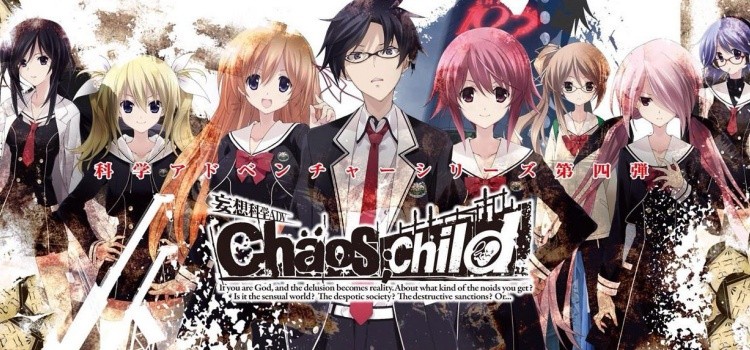
Table of Content
Main Games
The Science Adventure series consists of five main series games and four other spin-off games. In Japan, it is published by 5pb. and Nitroplus; in the West by JAST USA, PQube, and 5pb.. However, only Steins;Gate and Steins;Gate have had official releases in English.
ChäoS;HEAd is the first game in the series. It follows the story of Takumi, a young man who begins to experience delusions after witnessing a murder, becoming a suspect for the police, accused of committing a series of murders known as New Generation Madness.
Steins;Gate is the second. It follows the plot of Okabe, who accidentally invents a device capable of time travel. He and his friends use this device to send emails to the past, altering the present.
Robotic;Notes is the third, following the story of Kaito and a group of students in a high school robotics club, who are trying to build a giant and realistic robot.
ChäoS;Child is the fourth in a thematic sequence of ChäoS;HEAd, following the story of Takuru, who notices that two recent murders occurred on the same date as the murders from ChäoS;HEAd; Takuru eventually discovers that he and several of his friends are targets of the New-Gen.
Steins;Gate 0 is the fifth and a direct sequel to Steins;Gate, its story taking place during the original ending of the same.
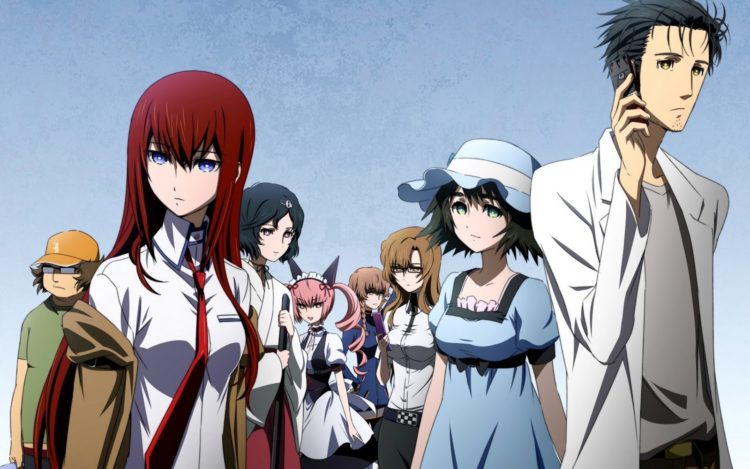
Common elements
As mentioned earlier, it is noteworthy that Science Adventure has characteristics of the science fiction genre, making use of real concepts and theories, but also employing fictional elements of imprecise sciences; ChäoS;HEAd and ChäoS;Child focus on individuals with the power to alter reality, discussing topics about perceptions, reality, and antimatter; Steins;Gate and Steins;Gate 0 focus on time travel, seeking an answer to the failures in building a machine capable of altering time and space, also establishing several interesting concepts for knowledge.
It's interesting that all the series within this set that forms Science Adventure take place in the same universe, connected through the 'Comitê de 300' as the antagonist. The Committee is based on a true conspiracy theory; it seeks world domination, no matter how cliché it may sound, always being portrayed as a very powerful group with total control over corporations, politicians, and religions, seemingly impossible to defeat, even with time travel and superpowers.
Novel Elements
Sharing also the element of Visual Novel, where players can often affect the story through choices, in ChäoS;HEAd and ChäoS;Child, they are made by controlling the types of illusions that the characters will experience, allowing for the option to give negative or positive delusions, and also the choice to remain in reality and not experience delusions. In Steins;Gate, it is possible to alter the story using the main character's phone, with the system being utilized through how the player responds to certain messages, phone calls, and also by taking it out of the pocket in specific situations. Besides affecting the narrative, it also gives you the chance to learn more about the main character Okabe Rintaro, to learn more about other characters, and how he should interact with them.
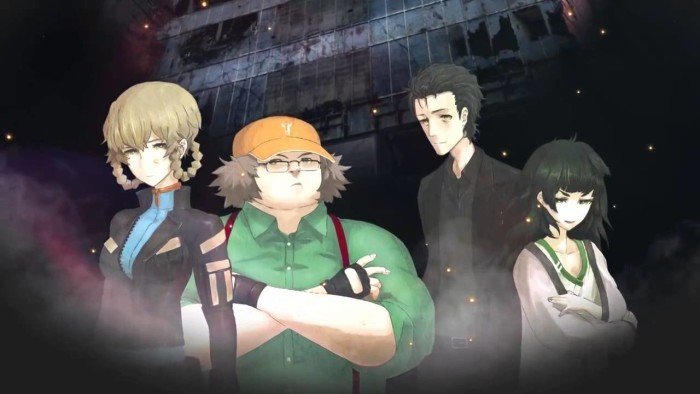
In Steins;Gate 0, the system has been simplified, consisting only of answering or not answering the phone at certain moments. In many ways, the system is similar to the original; it's just a matter of adaptation on the part of the reader.
Robotic; Notes resembles the Steins;Gate, but using a tablet and your apps instead of the good old folding phone.
Development
The series is developed in collaboration between 5pb. and Nitroplus, planned by 5pb.'s CEO, Chiyomaru Shikura. He chose to adjust the series to present realism, as he believed this would make the stories more relatable and believable; he personally stated that he found it difficult for people to buy into fantasy, not being convinced that they could get excited about exaggerated fantasy stories. The Steins;Gate team aimed for 99% of science and 1% of fantasy. Shikura mentioned having direct influence from the 1989 film Back to the Future Part II, citing how the film remains believable enough to give a sense that it is truly possible.
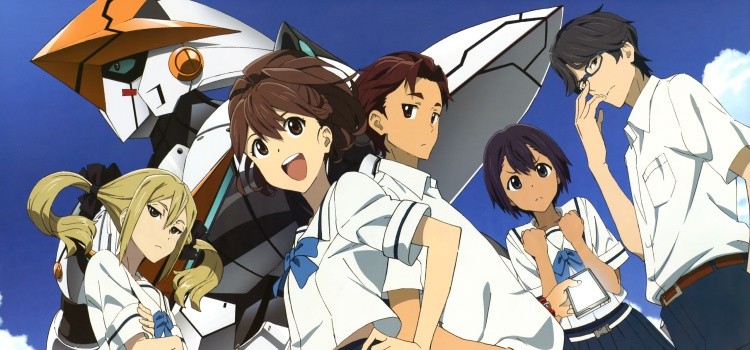
The team behind Robotic;Notes collaborated with JAXA, the Japan Aerospace Exploration Agency. The partnership was made to bring more realism to the story. The concept of using a phone in the series was created by Tatsuya Matsuhara for 5pb., who initially wanted the game to utilize the player’s own mobile phone but changed his mind out of concern that it could be against Japan's privacy laws.
Soundtrack development
The music present in Novels was composed by Takeshi Abo and Zizz Studio. Abo noted that even though these games are part of a single series, they all have different settings and convey different images; comparing with weather conditions, ChäoS;HEAd would be rain, Steins;Gate cloudy, Robotics;Notes clear weather, and ChäoS;Child a storm. He used the same composition process for all the Novels; he started by reading the story to understand the scenarios and characters as much as possible, taking notes on the emotional flow of each character and situations occurring throughout the story, using these to build the worldviews of his music for the games, giving a lot of consideration to his first impressions and appearances.
This approach, although slower than simply assigning music to different areas of a game, allowed him to compose songs with superior quality, with a better appreciation according to his experience and past visions within the world of Science Adventure. He was given a lot of freedom to work on the series, making music that he would like to create for himself, something he enjoyed very much. Abo also composed the theme song for each game, and he was especially happy with the theme song of Steins;Gate, Gate of Steiner, which aimed to represent the entire game as a whole.
Series reception:
The series was a success for 5pb., with the release of ChäoS;HEAd and Steins;Gate helping it establish itself as a game developer. In June 2011, sales of Steins;Gate surpassed the mark of 300,000 (three hundred thousand) copies sold, and Shikura saw this as an achievement for the genre. A year later, it was revealed that Robotic;Notes had over 80,000 (eighty thousand) pre-orders at its launch, a significant improvement compared to the launch of Steins;Gate.
Steins;Gate 0 also performed very well commercially, with more than 100,000 (one hundred thousand) copies sold only on its first day of release, Steins;Gate together with Steins;Gate 0, exceeded the mark of 1,000,000,000 (one million) copies sold! The original version of FloorS;Child, however, failed to reach the weekly sales list of the Top 50 in the Media Create's, selling only 1415 copies. A little disappointing, given the success of the others Novels from the series.
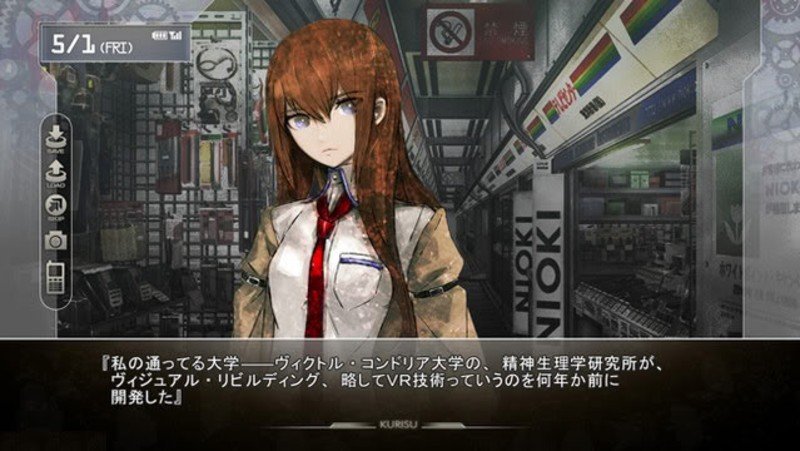
Overall, the games received positive reviews, both in Japan and the West. Many critics appreciated the story, music, visual elements, and the implementation of a new gameplay style that accompanies the Science Adventure, although some found it complicated and difficult to unlock certain routes. A writer from Anime News Network stated that the series contains well-developed mysteries and makes use of creative concepts, but that their conclusions are not always as good as their initial setup.
In 2009, Steins;Gate won the annual Famitsu Game of Excellence award. RPGFan included Steins;Gate as one of the 30 games in a list deemed essential for a role-playing experience from 2010-2015. It is considered one of the best Novels currently on the market. It was also nominated for the Golden Joystick Awards as the best portable/mobile game of 2015.
Science Adventure in other media
In addition to the Visual Novels, the series has expanded to adaptations in anime and spin-offs in various media, such as the audio dramas Alpha, Beta, and Gamma, stage plays, light novels, and mangas. Several music albums featuring soundtracks originally present in the games have also been released, along with albums with new arrangements. All current games in the series have anime adaptations. ChäoS;HEAd (2008), Steins;Gate (2011), Robotic;Notes (2012-2013), ChäoS;Child (2017), Steins;Gate 0 (2017).
